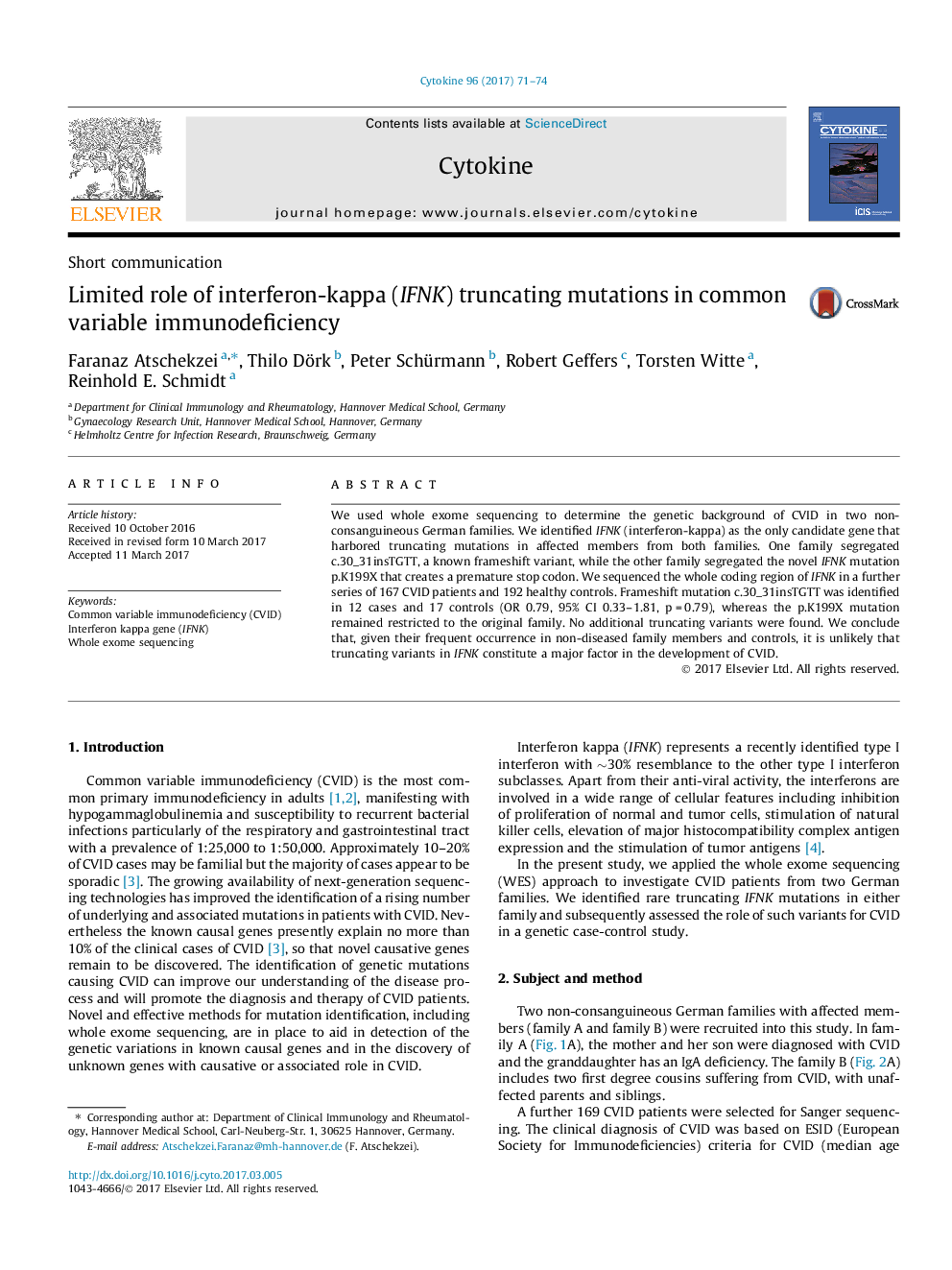| Article ID | Journal | Published Year | Pages | File Type |
|---|---|---|---|---|
| 5587006 | Cytokine | 2017 | 4 Pages |
Abstract
We used whole exome sequencing to determine the genetic background of CVID in two non-consanguineous German families. We identified IFNK (interferon-kappa) as the only candidate gene that harbored truncating mutations in affected members from both families. One family segregated c.30_31insTGTT, a known frameshift variant, while the other family segregated the novel IFNK mutation p.K199X that creates a premature stop codon. We sequenced the whole coding region of IFNK in a further series of 167 CVID patients and 192 healthy controls. Frameshift mutation c.30_31insTGTT was identified in 12 cases and 17 controls (OR 0.79, 95% CI 0.33-1.81, p = 0.79), whereas the p.K199X mutation remained restricted to the original family. No additional truncating variants were found. We conclude that, given their frequent occurrence in non-diseased family members and controls, it is unlikely that truncating variants in IFNK constitute a major factor in the development of CVID.
Related Topics
Life Sciences
Biochemistry, Genetics and Molecular Biology
Endocrinology
Authors
Faranaz Atschekzei, Thilo Dörk, Peter Schürmann, Robert Geffers, Torsten Witte, Reinhold E. Schmidt,
